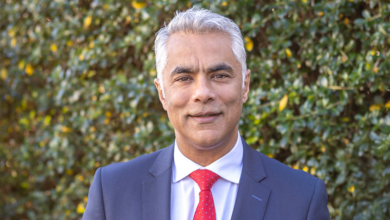Simple maths: the costs of division
 We cannot afford to be seen as a divided society, says Ben Collins, Director of the Royal Institution of Chartered Surveyors for Northern Ireland and Wales.
We cannot afford to be seen as a divided society, says Ben Collins, Director of the Royal Institution of Chartered Surveyors for Northern Ireland and Wales.
In today’s globalised economy, Northern Ireland needs to forge a strong and attractive image. We cannot afford to be seen as a divided society. As long as Northern Ireland is seen as comprising two separate communities, we will have a problem. This is not to say that a diverse culture is a problem but there are ways to cherish, nurture and respect different cultures and traditions whilst facing the world united.
I believe that creating a shared society is a crucial element of developing prosperity. Prosperity is not just economic. It encompasses community welfare and personal well-being, but the entrenched structures of division impact on both economic and social development and hold us back from thriving as a society.
These structures of division are seen in public life, where duplication of provision creates an unnecessary drain on the public purse. This is particularly apparent in the education sector.
The exact figures are hard to come by, but at one stage the cost of duplication in all areas of public spending was estimated to be more than £1 billion per annum, perhaps as high as £1.5 billion. In any case, there is no doubt the figure is a significant one. Certainly much higher than the likely impact on the block grant from a reduction in corporation tax. It is several times more than the bill we would incur to upgrade our water infrastructure. Yet whilst these two issues are seen as presenting economic challenges to the Executive, politicians hesitate over taking decisive action to deal with division.
One of the benefits of rationalising the provision of education would be to allow the public estate to realise the value of some of its under-utilised assets. It is not good asset management to retain more buildings than we need or can afford to maintain.
The most recent Programme for International Student Assessment (PISA) highlighted a significant proportion of our pupils leave school with inadequate qualifications. The money saved by eliminating duplication and division could go to improving skills and life chances. This would mean a holistic rethink of the education system, the design of a true vision for future delivery which uses public money to resource schools with the latest technology and with the support needed to make sure all students participate in and benefit from school life.
A more shared education system would benefit not only pupils but also the wider community by feeding into its economic and social activity. Social cohesion would help the pitch for direct investment. Young people would be better equipped to participate in work, in their communities and in the cultural life of Northern Ireland. We surely cannot care more about preserving established structures than about the future facing a sizeable portion of our young people.
In addition, we must be aware of the globalisation of industry and employment. The Employment and Learning Minister, Dr Stephen Farry, recently described “a fast-changing labour market across Europe… skills needs have changed with soft skills and customer facing skills becoming increasingly important.” With a progressively diverse employment scene, these skills can be encouraged in a school environment where diversity is respected and discussed. That is, a properly resourced environment where education comes first – not a wasteful system with too many buildings that are poorly maintained.
The Executive can’t, of course, wave a magic wand but devolution allows regional solutions to regional problems. Working towards a new, cohesive education system for Northern Ireland would be a powerful step towards creating a better, more prosperous society. Achieving a more shared future will require significant input from all government departments and agencies, as well as many other stakeholders in society. It will mean investing time and effort. Recent opinion polls suggest that the wider public is ready for this kind of investment. Given the huge cost of division, is there any alternative?
 Integrated Education Fund 41-43 University Street Belfast, BT7 1FY T: 028 9033 0031 / F: 028 9066 0061 W: www.ief.org.uk
Integrated Education Fund 41-43 University Street Belfast, BT7 1FY T: 028 9033 0031 / F: 028 9066 0061 W: www.ief.org.uk





